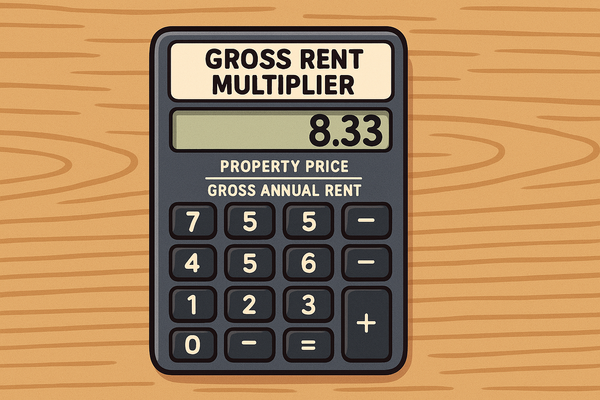Cash for Keys: The Ultimate Guide for Property Managers and Landlords
A strategic alternative to eviction that saves time, money, and preserves tenant relationships.
The Landlord Doc
— 172 min read


What is Cash for Keys?
Definition
Cash for Keys is a property management strategy where landlords offer financial incentives to tenants to voluntarily vacate a property in exchange for turning over the keys.
This approach creates a win-win situation: tenants receive funds for relocation while property owners avoid lengthy eviction processes and potential property damage.
Key Benefits for Property Owners
- Saves thousands in eviction costs
- Significantly reduces property vacancy time
- Minimizes potential property damage
- Maintains more positive tenant relationships
- Creates mutually beneficial outcomes

Cash for Keys vs. Formal Eviction
Cash for Keys
2-3 weeks process
$500-$5,000 cost
Preserves relationships
Formal Eviction
3-6 months process
$3,500-$10,000 cost
Often creates hostility
Property Turnover
Faster re-leasing
Less property damage
Better financial outcomes
Formal evictions can cost landlords between $3,500 and $10,000 when factoring in legal fees, lost rent, and property damage. Cash for Keys typically resolves issues in weeks rather than months, with significantly lower costs.
Official Recognition and Definitions
U.S. Department of Housing and Urban Development (HUD)
"A monetary consideration offered as an incentive to expedite a Deed in Lieu, a Short Sale, or as an alternative to legal eviction."
This official recognition demonstrates the legitimacy of this practice in property management.
California Attorney General's Office
"Offering consideration, monetary OR otherwise, to an OCCUPANT in exchange for the OCCUPANT's agreement to vacate a RENTAL HOUSING UNIT."
This definition emphasizes that Cash for Keys agreements apply to any occupant, not just lease-holding tenants.
Real Estate Industry Standard
A monetary incentive offered to occupants to voluntarily vacate a property in exchange for turning over the keys.
What makes Cash for Keys unique is its focus on creating mutually beneficial outcomes rather than adversarial processes.
Common Cash for Keys Scenarios
Lease Violations
Traditional tenant-landlord relationships when lease terms are violated, such as non-payment of rent or other breaches or outright squatting.
Post-Foreclosure
Helping former homeowners transition after a foreclosure, following specific HUD guidelines for federally-backed mortgages.
Property Sale Preparation
Quickly vacating units for renovation or sale, particularly valuable in investment property transactions.
Deteriorated Relationships
High-tension situations where landlord-tenant relationships have deteriorated but formal eviction would be costly and time-consuming.
Financial Impact of Cash for Keys
While typical Cash for Keys payments range from $500 to $5,000, this investment often yields significant returns by avoiding the much higher costs of formal eviction. HUD guidelines specify that for post-foreclosure eviction avoidance, incentives of $7,500 are appropriate if the property is vacated within 60 days of the offer, or $5,000 if vacated within 90 days.
Tenant Relationship Benefits
Creates "Win-Win" Situations
Research shows that Cash for Keys significantly reduces tension between property owners and occupants by creating a situation where both parties benefit. Tenants receive immediate financial assistance for relocation, while landlords avoid costly and time-consuming eviction proceedings.
Preserves Professional Reputation
In today's digital world, negative reviews from bitter tenants can harm your business prospects. Cash for Keys demonstrates professional courtesy and can prevent the kind of contentious situations that lead to negative online reviews.
Maintains Dignity for All Parties
By offering financial assistance rather than forcing removal, landlords acknowledge the challenges of relocation and help tenants transition with dignity, preserving human relationships even in difficult circumstances.
Operational Efficiency Improvements
Faster Property Turnover
Reduces vacancy periods by months
Property Protection
Less damage than contentious evictions
Improved Cash Flow
Quicker re-leasing improves returns
Streamlined Process
Avoids complex court proceedings
From a business operations perspective, Cash for Keys delivers measurable improvements in property turnover efficiency. The approach reduces vacancy periods compared to formal eviction processes, which can drag on for months in many jurisdictions. This faster property turnaround allows for quicker re-leasing or sale, improving cash flow and investment returns.
Scenario: The Non-Paying Tenant
Calculate Costs
Determine potential eviction costs ($3,000-$7,000) and offer a Cash for Keys agreement of approximately $1,500 for the tenant to vacate within 14 days.
Present Written Offer
Present a written offer clearly stating the amount and move-out date. Create a formal agreement documenting all terms.
Conduct Inspection
Conduct a property inspection upon vacancy to ensure the unit meets "broom-swept condition" requirements.
Provide Payment
Provide payment only after confirming the unit condition and receiving all keys.
Situation: A tenant is three months behind on rent with no realistic payment plan in sight. The relationship has begun to deteriorate, but formal eviction would take another 2-4 months in your jurisdiction.
Outcome: The property is vacated in two weeks rather than months, ready for new tenants, and both parties avoid the stress and expense of court proceedings.
Scenario: Post-Foreclosure Occupancy
Verify Authority
Ensure you have proper legal authority to make the Cash for Keys offer as a representative of the foreclosing entity.
Document Offer
Following HUD guidelines, offer $5,000-$7,500 (depending on timeframe) for the occupants to vacate promptly. Document the date and amount of consideration offered.
Specify Requirements
Clearly outline the move-out date and required property condition in writing.
Complete Documentation
Create comprehensive documentation as required by HUD: date funds were disbursed, date the property was vacated, evidence of successful bid and vacancy date.
Situation: Your management company has taken on a foreclosed property with current occupants who have no legal right to remain but aren't voluntarily leaving.
Outcome: Property is transitioned efficiently, compliant with all federal requirements, and ready for renovation or resale much faster than through eviction.
Scenario: Rent-Controlled Unit Preparation
Rent Stabilization Ordinance
Implement a tenant buyout through the city's "Tenant Buy Out Notification and Disclosure Program," offering a larger sum reflecting the tenant's special protections.
Disclosure Requirements
Provide tenants with a copy of the RSO Disclosure Notice and file documentation with the City of Los Angeles Housing Department.
Fair Compensation
Negotiate fair compensation considering length of tenancy and rent control benefits.
Local Compliance
Complete all required local paperwork in addition to standard agreements.
Situation: You manage properties in Los Angeles under the Rent Stabilization Ordinance and need to prepare a unit for major renovations.
Outcome: Legal compliance with special jurisdictional requirements while achieving the business objective of preparing the unit for renovation.
Cash for Keys Payment Ranges by Context
Payment amounts vary significantly based on the specific context and local regulations. HUD guidelines specify ranges of $5,000-$7,500 for post-foreclosure situations, while the USDA Rural Development program caps payments at $2,500. Rent-controlled jurisdictions often require higher payments reflecting the tenant's special protections.
The ideal amount should be enough to incentivize moving but significantly less than eviction costs. Always research typical local payment ranges and factor in property value, market conditions, and tenant circumstances.
Federal Regulations for Cash for Keys
HUD Requirements
The U.S. Department of Housing and Urban Development has established detailed requirements for Cash for Keys, particularly in relation to federally-backed mortgages. These guidelines specify documentation requirements including:
- Date and amount of consideration offered
- Date the property was vacated
- Date funds were disbursed
- Additional specific documentation for Deed in Lieu, Short Sale, or post-foreclosure scenarios
USDA Rural Development Program
The USDA Rural Development program also provides guidelines, specifying maximum payment amounts of $2,500 and property condition requirements. Property managers dealing with properties under these programs must strictly adhere to these federal standards.
Protecting Tenants at Foreclosure Act
This important federal legislation provides protections for tenants that must be respected even when offering buyout incentives. It affects Cash for Keys agreements in post-foreclosure situations by establishing minimum notice periods and lease continuation rights.
State and Local Variations
California Requirements
In California, proper identification of authority is mandatory for those making Cash for Keys offers. The California Department of Real Estate warns that persons engaged in soliciting or negotiating these agreements may require a real estate license, unless performing purely ministerial tasks.
Los Angeles Regulations
Los Angeles has established a "Tenant Buy Out Notification and Disclosure Program" for units covered under the Rent Stabilization Ordinance. This program requires landlords to provide tenants with a copy of the RSO Disclosure Notice and file documentation with the City of Los Angeles Housing Department.
Other Rent-Controlled Jurisdictions
Other rent-controlled jurisdictions may have similar special requirements that supersede standard practices. Always research local regulations before implementing Cash for Keys programs in these areas.
Essential Documentation Requirements
1
Party Identification
Clearly identify all parties and their legal standing in the agreement. Ensure all legal occupants are included to prevent later claims.
2
Clear Terms
Specify payment amount, timeline, and detailed property condition requirements. Be explicit about what constitutes "broom-swept condition."
3
Signatures
Obtain signatures from all involved parties, including all adult occupants of the property.
4
Release of Claims
Include explicit release of claims language to prevent future legal action related to the tenancy.
5
Inspection Procedures
Detail the move-out inspection process and how property condition will be verified.
6
Payment Methods
Specify payment delivery methods and timing, clearly stating that payment will only be provided after receiving keys and confirming vacancy.
Potential Legal Pitfalls to Avoid
Verbal Agreements
Without written documentation, collection of promised funds can be difficult if disputed later
Misrepresentation of Authority
Ensure the person making the Cash for Keys offer has proper legal authority
Failure to Verify Occupant Identity
Confirm you're negotiating with all legal occupants to prevent later claims
Ignoring Special Protections
Certain tenants (seniors, disabled individuals) may have additional legal protections
Non-compliance with legal requirements can result in invalidated agreements, potential lawsuits, and even licensing issues for property managers in some states. Always consult with a real estate attorney when developing your Cash for Keys program, especially if operating across multiple jurisdictions.
Cash for Keys Decision Tree
Is the tenant behind on rent?
If YES: Calculate potential eviction costs and compare to a reasonable Cash for Keys offer.
If NO: Consider whether there are other lease violations or if you need the unit vacated for other reasons.
Is the relationship salvageable?
If YES: Consider whether a payment plan or lease modification might be more appropriate.
If NO: Cash for Keys may be the most efficient resolution to avoid further conflict.
Are there special legal protections?
If YES: Research jurisdiction-specific requirements for rent control, tenant protections, or foreclosure situations.
If NO: Proceed with standard Cash for Keys documentation and process.
What is the estimated timeline comparison?
Cash for Keys: Typically 2-3 weeks from offer to vacancy
Formal Eviction: Usually 3-6 months depending on jurisdiction
Determining the Optimal Offer Amount
Calculate Eviction Costs
Research potential costs of formal eviction in your jurisdiction
Research Local Ranges
Typical payments range from $500-$5,000 in most markets
Consider Property Factors
Factor in property value, market conditions, and tenant circumstances
Assess Special Circumstances
Consider length of tenancy or protected status
Set Authorization Limits
Establish maximum amounts for staff to offer without additional approval
The ideal amount should be enough to incentivize moving but significantly less than eviction costs. Remember that government guidelines specify ranges like HUD's $5,000-$7,500 depending on timing, but your situation may warrant different amounts.
Creating Clear, Professional Documentation
Standardized Templates
Develop standardized agreement templates reviewed by legal counsel that include all required elements: parties, property, payment, conditions, timeline. Use straightforward language that tenants can easily understand.
Property Condition Standards
Specify "broom-swept condition" as the minimum standard for property condition. Include detailed checklists for move-out inspections to ensure clarity about expectations.
Release of Claims
Include explicit release of claims to prevent future legal action. This protects property owners from subsequent disputes about the tenancy or condition of the property.
Implementing a Structured Negotiation Process
1
Present Initial Offer
Present the initial offer in writing with clear terms and timeline
Provide all necessary disclosures required by your jurisdiction
Allow Consideration Time
Allow reasonable time (24-48 hours) for tenant consideration
Be available to answer questions about the process
Address Concerns
Listen to concerns and be willing to adjust terms if reasonable
Document all communications and changes to offers
Finalize Agreement
Never pressure tenants or make threats during negotiations
Consider using a neutral third party if relationships are particularly strained
This approach creates transparency and helps maintain professional relationships even in difficult circumstances. Respect for the tenant during this process often leads to better outcomes for all parties.
Conducting Thorough Property Inspections
Create Detailed Checklist
Develop a comprehensive move-out inspection checklist specific to Cash for Keys agreements that covers all areas of the property.
Schedule Inspection
Schedule the inspection at least 24 hours before the agreed payment time to allow for any last-minute issues to be addressed.
Document Condition
Document the condition with date-stamped photographs or video to create a clear record of the property's state at vacancy.
Verify Vacancy
Confirm all personal belongings have been removed and all keys, access cards, and garage openers are returned.
Property inspection apps with photo documentation features can streamline this process and provide valuable evidence should disputes arise later. Establishing clear tenant move-out protocols is crucial for a smooth transition.
Handling Payment Securely
Confirm Vacancy First
Never provide payment until keys are received and vacancy is confirmed through a thorough inspection.
Choose Appropriate Payment Method
Consider using cashier's checks rather than personal checks for larger amounts. For smaller amounts, cash payment might be preferred to ensure immediate settlement.
Document Receipt
Have the tenant sign a receipt acknowledging payment and keep detailed records of all financial transactions.
Consider Witnesses
Having a witness present during payment exchange provides additional protection and documentation of the completed transaction.
Secure payment handling protects both parties and provides documentation of the completed transaction. This final step should be handled with the same professionalism as all previous steps.
Understanding Related Concepts: Eviction Process
1
Notice Period
Formal written notice to tenant (3-30 days depending on jurisdiction and reason)
2
Court Filing
Legal complaint filed with local court ($50-$500 in fees)
3
Court Hearing
Both parties present case to judge (typically 2-6 weeks after filing)
4
Judgment
Court issues decision (usually favors landlord if lease violation is proven)
5
Sheriff Lockout
Law enforcement removes tenant (can take additional 1-4 weeks to schedule)
The formal eviction process is the legal alternative that Cash for Keys aims to avoid. Understanding the full eviction timeline in your jurisdiction – from notice to court filing to physical removal – provides essential context for evaluating Cash for Keys opportunities. Property managers who thoroughly understand both options can make strategic decisions about when each approach makes the most sense.
Understanding Related Concepts: Security Deposits
Relationship to Cash for Keys
Security deposits are often addressed in conjunction with Cash for Keys agreements. When tenants leave owing back rent, the security deposit typically applies to those arrears before any additional Cash for Keys payment is calculated.
Security Deposit Management
Property managers must understand security deposit handling laws in their jurisdiction and clearly address how deposits will be handled in the Cash for Keys agreement.
Legal Requirements and Timelines
- Most states have specific timelines for returning deposits (typically 14-60 days)
- Itemized deductions must usually be provided in writing
Financial Obligations and Potential Penalties
- Some jurisdictions require interest to be paid on deposits
- Penalties for improper handling can be severe (up to 3x the deposit amount in some areas)

Understanding Related Concepts: Tenant Rights During Foreclosure
Protecting Tenants at Foreclosure Act
Post-foreclosure Cash for Keys programs must navigate the complex landscape of tenant rights during foreclosure. The Protecting Tenants at Foreclosure Act provides important federal protections that vary depending on whether occupants are former owners or tenants with valid leases.
Legal Authority
Understanding these rights helps property managers determine who has legal authority to offer Cash for Keys agreements and what timelines are legally permissible – critical knowledge for post-foreclosure property management.
Lease Continuation
In many cases, valid leases survive foreclosure and must be honored by the new owner, though Cash for Keys can still be offered as an alternative to waiting for lease expiration.
Notice Requirements
Federal law requires at least 90 days' notice to vacate for most tenants after foreclosure, though this can be negotiated through Cash for Keys agreements.
Understanding Related Concepts: Rent Control and Tenant Protection
Los Angeles Requirements
In jurisdictions with rent control or tenant protection ordinances, Cash for Keys agreements face additional regulations and documentation requirements. Cities like Los Angeles maintain specific "Tenant Buyout Notification" programs with mandatory disclosures and filings.
San Francisco Regulations
San Francisco has some of the strictest tenant protection ordinances in the country, requiring specific disclosures and often resulting in higher Cash for Keys payments to reflect the value of rent control protections.
New York City Considerations
New York's rent stabilization laws create special considerations for Cash for Keys agreements, often requiring consultation with attorneys who specialize in the city's complex housing regulations.
Understanding Related Concepts: Deed in Lieu and Short Sale
Deed in Lieu of Foreclosure
In mortgage servicing contexts, Cash for Keys relates closely to Deed in Lieu (DIL) processes, where homeowners voluntarily transfer property ownership to the lender to avoid foreclosure.
HUD guidelines specify different incentive amounts for DIL scenarios.
Short Sale Process
Cash for Keys is also used in Short Sale processes, where the property is sold for less than the mortgage balance.
These agreements help facilitate property transitions after sale approval.
3
3
HUD Guidelines
HUD specifies different incentive amounts for each scenario, making it important for property managers handling these situations to understand the distinctions.
Property Management Context
This relationship is particularly relevant for property managers working with lenders or servicing foreclosed properties.
Common Questions About Cash for Keys
Is Cash for Keys legal?
Yes, Cash for Keys agreements are legal when properly executed. They represent a voluntary contractual agreement between property owners and occupants. However, in some jurisdictions like Los Angeles, there are specific requirements for documentation and disclosure that must be followed to maintain legality. Property managers should always verify local regulations before implementing these agreements.
How much should I offer in a Cash for Keys agreement?
The appropriate amount depends on several factors: local market conditions and rental rates, potential eviction costs in your jurisdiction, property value and condition, tenant circumstances and length of tenancy.
Government guidelines specify ranges: HUD: $5,000-$7,500 depending on timing and circumstances, USDA: Maximum of $2,500, California DRE reports typical ranges of $500-$5,000.
As a general rule, offer enough to make moving financially feasible for the tenant while keeping the amount significantly below what a formal eviction would cost in time and money.
What condition must the property be left in?
Most agreements require "broom-swept condition" at minimum, meaning: all personal belongings removed, interior swept clean, no new damage to fixtures or appliances, all trash removed from the property, no abandoned vehicles or large items.
The specific requirements should be clearly detailed in your written agreement. Many property managers include photographic evidence of the property's condition before the agreement to establish a baseline for comparison.
Do I need a real estate license to negotiate Cash for Keys?
In some states, including California, a real estate license is required for soliciting and negotiating Cash for Keys arrangements unless the activities are purely ministerial. This requirement varies by jurisdiction, so property managers should check local licensing requirements before implementing Cash for Keys programs, especially if they're acting on behalf of property owners rather than managing their own properties.
Resources for Property Managers





For property managers looking to enhance their Cash for Keys program, these resources provide valuable additional information:
Conclusion: Maximizing Value Through Cash for Keys
$6,500
Average Eviction Savings
Typical cost difference between Cash for Keys and formal eviction
75%
Time Reduction
Average decrease in property vacancy time compared to eviction
90%
Damage Prevention
Reduction in property damage compared to contentious evictions
Cash for Keys represents one of the most valuable strategies in a property manager's toolkit, offering a rare win-win scenario in what could otherwise be contentious situations. By providing financial assistance to tenants while avoiding costly eviction proceedings, property managers can significantly improve operational efficiency while maintaining professional relationships.
The key to success lies in proper implementation. By following the best practices outlined in this guide – from determining appropriate offer amounts to creating professional documentation and handling payments securely – property managers can maximize the benefits of this approach while minimizing potential legal and operational risks.
Remember that Cash for Keys is not merely a cost-saving measure but a relationship management strategy. The professional courtesy extended through this approach can preserve your reputation as a property manager and prevent the kind of contentious situations that lead to negative outcomes for all parties.





